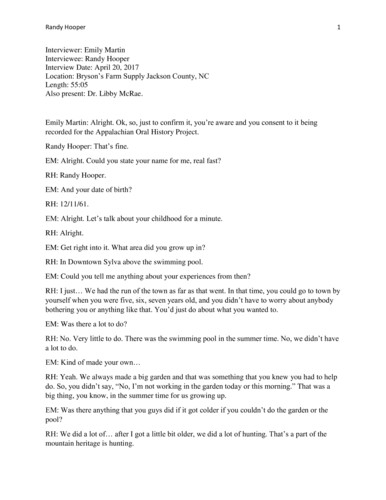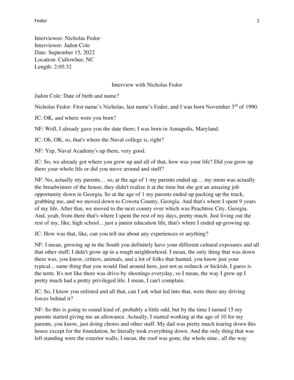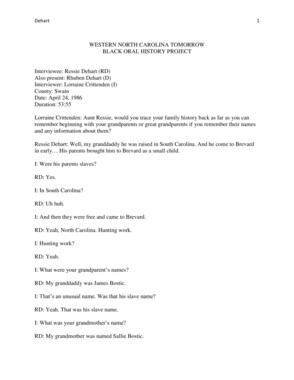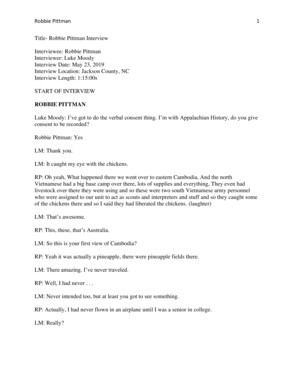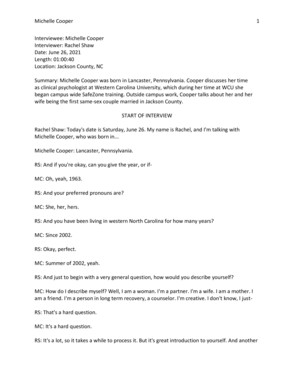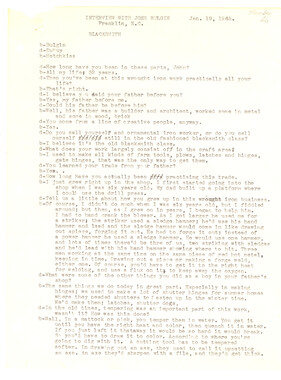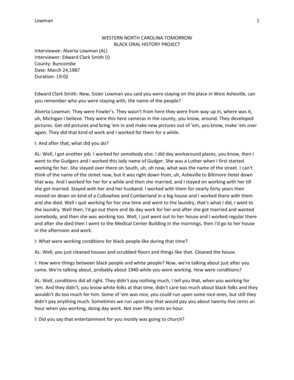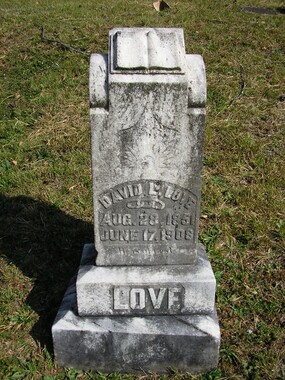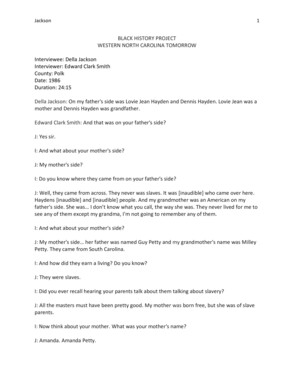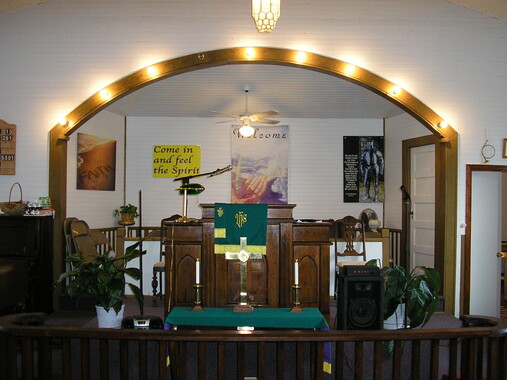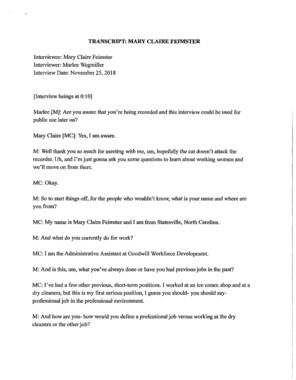Western Carolina University (20)
View all
- Canton Champion Fibre Company (2308)
- Cherokee Traditions (293)
- Civil War in Southern Appalachia (165)
- Craft Revival (1942)
- Great Smoky Mountains - A Park for America (2683)
- Highlights from Western Carolina University (430)
- Horace Kephart (941)
- Journeys Through Jackson (154)
- LGBTQIA+ Archive of Jackson County (15)
- Oral Histories of Western North Carolina (314)
- Picturing Appalachia (6679)
- Stories of Mountain Folk (413)
- Travel Western North Carolina (160)
- Western Carolina University Fine Art Museum Vitreograph Collection (129)
- Western Carolina University Herbarium (92)
- Western Carolina University: Making Memories (708)
- Western Carolina University Publications (2283)
- Western Carolina University Restricted Electronic Theses and Dissertations (146)
- Western North Carolina Regional Maps (71)
- World War II in Southern Appalachia (131)
University of North Carolina Asheville (6)
View all
- 1700s (1)
- 1860s (1)
- 1890s (1)
- 1900s (2)
- 1920s (2)
- 1930s (5)
- 1940s (12)
- 1950s (19)
- 1960s (35)
- 1970s (31)
- 1980s (16)
- 1990s (10)
- 2000s (20)
- 2010s (24)
- 2020s (4)
- 1600s (0)
- 1800s (0)
- 1810s (0)
- 1820s (0)
- 1830s (0)
- 1840s (0)
- 1850s (0)
- 1870s (0)
- 1880s (0)
- 1910s (0)
- Appalachian Region, Southern (15)
- Asheville (N.C.) (11)
- Avery County (N.C.) (1)
- Buncombe County (N.C.) (55)
- Cherokee County (N.C.) (17)
- Clay County (N.C.) (2)
- Graham County (N.C.) (15)
- Great Smoky Mountains National Park (N.C. and Tenn.) (1)
- Haywood County (N.C.) (40)
- Henderson County (N.C.) (5)
- Jackson County (N.C.) (131)
- Knox County (Tenn.) (1)
- Macon County (N.C.) (17)
- Madison County (N.C.) (4)
- McDowell County (N.C.) (1)
- Mitchell County (N.C.) (5)
- Polk County (N.C.) (3)
- Qualla Boundary (6)
- Rutherford County (N.C.) (1)
- Swain County (N.C.) (30)
- Watauga County (N.C.) (2)
- Waynesville (N.C.) (1)
- Yancey County (N.C.) (3)
- Blount County (Tenn.) (0)
- Knoxville (Tenn.) (0)
- Lake Santeetlah (N.C.) (0)
- Transylvania County (N.C.) (0)
- Interviews (314)
- Manuscripts (documents) (3)
- Personal Narratives (7)
- Photographs (4)
- Sound Recordings (308)
- Transcripts (216)
- Aerial Photographs (0)
- Aerial Views (0)
- Albums (books) (0)
- Articles (0)
- Artifacts (object Genre) (0)
- Biography (general Genre) (0)
- Cards (information Artifacts) (0)
- Clippings (information Artifacts) (0)
- Crafts (art Genres) (0)
- Depictions (visual Works) (0)
- Design Drawings (0)
- Drawings (visual Works) (0)
- Envelopes (0)
- Facsimiles (reproductions) (0)
- Fiction (general Genre) (0)
- Financial Records (0)
- Fliers (printed Matter) (0)
- Glass Plate Negatives (0)
- Guidebooks (0)
- Internegatives (0)
- Land Surveys (0)
- Letters (correspondence) (0)
- Maps (documents) (0)
- Memorandums (0)
- Minutes (administrative Records) (0)
- Negatives (photographs) (0)
- Newsletters (0)
- Newspapers (0)
- Occupation Currency (0)
- Paintings (visual Works) (0)
- Pen And Ink Drawings (0)
- Periodicals (0)
- Plans (maps) (0)
- Poetry (0)
- Portraits (0)
- Postcards (0)
- Programs (documents) (0)
- Publications (documents) (0)
- Questionnaires (0)
- Scrapbooks (0)
- Sheet Music (0)
- Slides (photographs) (0)
- Specimens (0)
- Speeches (documents) (0)
- Text Messages (0)
- Tintypes (photographs) (0)
- Video Recordings (physical Artifacts) (0)
- Vitreographs (0)
- WCU Mountain Heritage Center Oral Histories (25)
- WCU Oral History Collection - Mountain People, Mountain Lives (71)
- Western North Carolina Tomorrow Black Oral History Project (69)
- A.L. Ensley Collection (0)
- Appalachian Industrial School Records (0)
- Appalachian National Park Association Records (0)
- Axley-Meroney Collection (0)
- Bayard Wootten Photograph Collection (0)
- Bethel Rural Community Organization Collection (0)
- Blumer Collection (0)
- C.W. Slagle Collection (0)
- Canton Area Historical Museum (0)
- Carlos C. Campbell Collection (0)
- Cataloochee History Project (0)
- Cherokee Studies Collection (0)
- Daisy Dame Photograph Album (0)
- Daniel Boone VI Collection (0)
- Doris Ulmann Photograph Collection (0)
- Elizabeth H. Lasley Collection (0)
- Elizabeth Woolworth Szold Fleharty Collection (0)
- Frank Fry Collection (0)
- George Masa Collection (0)
- Gideon Laney Collection (0)
- Hazel Scarborough Collection (0)
- Hiram C. Wilburn Papers (0)
- Historic Photographs Collection (0)
- Horace Kephart Collection (0)
- Humbard Collection (0)
- Hunter and Weaver Families Collection (0)
- I. D. Blumenthal Collection (0)
- Isadora Williams Collection (0)
- Jesse Bryson Stalcup Collection (0)
- Jim Thompson Collection (0)
- John B. Battle Collection (0)
- John C. Campbell Folk School Records (0)
- John Parris Collection (0)
- Judaculla Rock project (0)
- Kelly Bennett Collection (0)
- Love Family Papers (0)
- Major Wiley Parris Civil War Letters (0)
- Map Collection (0)
- McFee-Misemer Civil War Letters (0)
- Mountain Heritage Center Collection (0)
- Norburn - Robertson - Thomson Families Collection (0)
- Pauline Hood Collection (0)
- Pre-Guild Collection (0)
- Qualla Arts and Crafts Mutual Collection (0)
- R.A. Romanes Collection (0)
- Rosser H. Taylor Collection (0)
- Samuel Robert Owens Collection (0)
- Sara Madison Collection (0)
- Sherrill Studio Photo Collection (0)
- Smoky Mountains Hiking Club Collection (0)
- Stories of Mountain Folk - Radio Programs (0)
- The Reporter, Western Carolina University (0)
- Venoy and Elizabeth Reed Collection (0)
- WCU Gender and Sexuality Oral History Project (0)
- WCU Students Newspapers Collection (0)
- William Williams Stringfield Collection (0)
- Zebulon Weaver Collection (0)
- African Americans (97)
- Artisans (5)
- Cherokee pottery (1)
- Cherokee women (1)
- College student newspapers and periodicals (4)
- Education (3)
- Floods (13)
- Folk music (3)
- Great Smoky Mountains National Park (N.C. and Tenn.) (1)
- Hunting (1)
- Mines and mineral resources (2)
- Rural electrification -- North Carolina, Western (2)
- School integration -- Southern States (2)
- Segregation -- North Carolina, Western (5)
- Slavery (5)
- Sports (2)
- Storytelling (3)
- World War, 1939-1945 (3)
- Appalachian Trail (0)
- Cherokee art (0)
- Cherokee artists -- North Carolina (0)
- Cherokee language (0)
- Church buildings (0)
- Civilian Conservation Corps (U.S.) (0)
- Dams (0)
- Dance (0)
- Forced removal, 1813-1903 (0)
- Forest conservation (0)
- Forests and forestry (0)
- Gender nonconformity (0)
- Landscape photography (0)
- Logging (0)
- Maps (0)
- North Carolina -- Maps (0)
- Paper industry (0)
- Postcards (0)
- Pottery (0)
- Railroad trains (0)
- Waterfalls -- Great Smoky Mountains (N.C. and Tenn.) (0)
- Weaving -- Appalachian Region, Southern (0)
- Wood-carving -- Appalachian Region, Southern (0)
- Sound (308)
- StillImage (4)
- Text (219)
- MovingImage (0)
Interview with Randy Hooper
Item
Item’s are ‘child’ level descriptions to ‘parent’ objects, (e.g. one page of a whole book).
-
-
Randy Hooper 1 Interviewer: Emily Martin Interviewee: Randy Hooper Interview Date: April 20, 2017 Location: Bryson’s Farm Supply Jackson County, NC Length: 55:05 Also present: Dr. Libby McRae. Emily Martin: Alright. Ok, so, just to confirm it, you’re aware and you consent to it being recorded for the Appalachian Oral History Project. Randy Hooper: That’s fine. EM: Alright. Could you state your name for me, real fast? RH: Randy Hooper. EM: And your date of birth? RH: 12/11/61. EM: Alright. Let’s talk about your childhood for a minute. RH: Alright. EM: Get right into it. What area did you grow up in? RH: In Downtown Sylva above the swimming pool. EM: Could you tell me anything about your experiences from then? RH: I just… We had the run of the town as far as that went. In that time, you could go to town by yourself when you were five, six, seven years old, and you didn’t have to worry about anybody bothering you or anything like that. You’d just do about what you wanted to. EM: Was there a lot to do? RH: No. Very little to do. There was the swimming pool in the summer time. No, we didn’t have a lot to do. EM: Kind of made your own… RH: Yeah. We always made a big garden and that was something that you knew you had to help do. So, you didn’t say, “No, I’m not working in the garden today or this morning.” That was a big thing, you know, in the summer time for us growing up. EM: Was there anything that you guys did if it got colder if you couldn’t do the garden or the pool? RH: We did a lot of… after I got a little bit older, we did a lot of hunting. That’s a part of the mountain heritage is hunting. Randy Hooper 2 Libby McRae: What did you hunt? RH: Mainly deer. Sometimes a bear. Bear hunting is a big sport here in the county. Well, in Western North Carolina as a whole. We used to coon hunt a lot, and we’d eat the coons that we’d catch. We’d catch and kill a groundhog, you know. You wouldn’t waste it. You’d eat it. LMR: I’ve had groundhog, but I have not eaten racoon. Have you? EM: No. Not well versed. Do you have a favorite childhood memory? RH: I can’t recall one right now. We may come back to that one in a minute. EM: Alright. Let’s talk a little bit about your family. Can you tell me just some general information about your family? RH: My family… I had three sisters. Older sisters. My mother was a nurse. My daddy was a mechanic. I lived in just a real old house. In the winter time, your water would stay frozen for three or four weeks at a time. Not a lot of heat. So, that’s… And all the family lived in one… the doc wanted me… There’s someone I need to talk to. (RH exits and returns a few minutes later) RH: I’ve got special little girls and boys and come look for the dog. There’s some about every day. LMR: I know. I saw them. RH: Sorry about that. EM: Oh, you’re fine. Alright. RH: Ok. What can I answer? LMR: Your sisters. EM: We were talking about your sisters. RH: Yeah. I have three sisters and my mom and dad. I grew up there right in town, and sometimes it was pretty tough. You hit that old floor in the morning… There was a lot of heat. LMR: Wood heat? Did you heat the house? RH: We did. We had a fireplace. We had an open fireplace so… EM: Did you have to chop the wood yourself? RH: Don’t remember if I did or not. Because, when I got to be about six years old my grandparents moved to town, and I stayed with them. They had a whole lot warmer place, but it was still an old house there just right above the old, the swimming pool, the old fire department. It was an old two-story house. EM: Did you have a lot of land around it? Randy Hooper 3 RH: There wasn’t a lot of land. There was the land we gardened on. Neighbors. My parents didn’t own a lot of land in town. EM: Let’s see. Well, we talked about what your parents did, how did that influence you? Did you help out with your dad or anything? RH: No. Most of the time… He was working five or six days a week. He’d go work. He worked in construction. He might leave at five or six in the morning and maybe not get back till a late time of night. So, we all were glad for it. We had to have food. EM: Do you remember what all you did? RH: I helped keep the grass mowed and raked leaves. Just general outside chores mainly. EM: Did you sisters do stuff inside? RH: The best I can remember. But like I said, after I was six years old that’s when I went and stayed with my grandparents. But, it wasn’t one-hundred yards from where we lived. That’s where they lived. LMR: Why’d you get… Did you just… They needed help or…? RH: Well, not really. My mama, she spent a lot of that time working, and I just grew really close. I’m actually probably closer to my grandparents than I was to my mom and daddy. I’ve got a lot of strong memories of both of them. EM: What did your grandparents do? Were they retired? RH: They retired. My granddaddy was a logger out in Glenville, and my grandmother raised her family. Back in those days, whatever you eat you grow. They grew a lot of cabbage and hauled cabbage to Atlanta and Greenville, South Carolina to go to the farmer’s markets. At that time, the Glenville area grew a cabbage they called the Hamburg cabbage. It was a highly sought-after cabbage for eating and for making kraut. About everybody up there, that was a part of their living. And logging. Cutting pulpwood. The men did that and the ladies they raised the family and did most of the farming. So, I guess my grandmothers and the mothers then were the backbone of the families as far as keeping food on the tables. That’s, you know, what I can remember from talking with them before they moved to town. LMR: What were their names? RH: My granddaddy’s name was Ira Broom, and my grandmother was named Eva Broom. EM: How did you and your wife meet? RH: We met in school. From school, I spent a lot of time out here, and they put me to work in 1979 here. We were married in 1980. That’s how I met my wife. EM: So, you worked here before y’all got married. RH: Uh huh. Yeah. I’d been here a little over a year. Randy Hooper 4 EM: Were you guys engaged? RH: Not at that point we weren’t. But, it all worked out really good. LMR: Did you meet her at the high school? RH: Uh huh. Yeah. At old Sylva Webster High School. It wasn’t Smoky Mountain then. It was… LMR: Sylva Webster. RH: Yes. EM: How old were y’all when you got married? RH: I was eighteen and Debbie was seventeen. We married at a young age. It’s been a journey. We’ve had a lot of good times together. Hopefully, it will continue, you know. Another thirty-seven-year journey. EM: So, you were talking about high school, can you tell me a little bit about your time in high school? RH: High school? Yeah. I kind of talked my way through school. I spent a lot of time in the agriculture department. The agriculture teacher at that time was named Bill Fouch. He came to work there. I guess I was his first graduating class in four years. I was in that class. I played on the football team and at that time, you didn’t have a lot of sports to play. You had just football and baseball and basketball and wrestling. There weren’t different sports or more sports like they have out there today. They weren’t there when we went. The thing I remember most enjoying was agriculture. Reading and writing was not a good subject for me. Mathematics was. I could tell a lot of people I graduated from high school with a third-grade education. But, I got graduated. It all worked out from there. I was going through the agriculture program at Sylva Webster. There were four different degrees you could earn. The first was like a chapter farmer award. And, the sophomore year, I can’t remember what the name of that particular award was. Then, you could apply for the state agriculture award and the national agriculture award. So, I was the first one to receive all those awards. Since then, there has been one more boy that was right behind me that received the national. I didn’t do a project or the work. So, the first year I applied for the national agriculture award I was turned down. Well, I got to apply in the second year, and I applied under ag-business. Because at that time I was the assistant manager here. I was up as a full-time manager by the time I was twenty-two years old. I was pretty much helping to run the whole store. So, that was a pretty big thing for me. LMR: What was the ag-business project that you did? RH: Working here. LMR: Ok. So, you just did it and told. Randy Hooper 5 RH: You had to fill out a form about what you did and how much money you made and what your responsibilities were in your job. I worked to oversee that and something like that had never happened before. They were very proud of me. LMR: We should look in the yearbook. Did they take your picture and put it in the yearbook? RH: No. They didn’t because I had been out of school a year. LMR: You had been out of school. Ok. RH: I think Jeremy, was is ag teacher’s name, he’s got a copy of all that. I’ve got some copies of where it was in the Sylva local paper and the Asheville paper. That’s about what I can tell you about school. EM: Do you remember anything from elementary school or middle school? RH: Well, I remember going to the old Sylva school. Then, in the middle of the sixth grade, they moved us out to Fairview. That’s about all I remember about elementary school. EM: Were you interested in agriculture even back then? RH: Not then I wasn’t. It wasn’t really until I got into high school. Back then, the ag teacher could take you out and do projects for farmers, like vaccinating their cows or working with their hogs or just whatever. That was an opportunity because that was something we did two or three times a week. Because everybody, back in those days, had cows, had hogs, and that was an opportunity. A way of getting out of school two or three hours because he’d write you an excuse note about why you weren’t in class. So, that worked out pretty good. One year, we grew hogs. Several years. My last year we had… We grew some hogs. We sold them for a project for agriculture. Then we had an FFA banquet, and we’d take a couple of those hogs and cook them. That would be the main food for the banquet. We did that for several years before we got away from that. LMR: Like a pig picking? You’d cook the whole hog? RH: Uh huh. Yeah. Today, I don’t know if the county and the state would let them. It wasn’t nothing for us to get into the agriculture teacher’s vehicle and come down here and get hog feed or if anybody would send you to town to get whatever we needed or the auto parts to get stuff to work with. You couldn’t do that today. LMR: No. Emily take my car! EM: Gosh no. Definitely not. Alright. Let’s see. We just covered all of that. Great! Ok, so, let’s talk a little bit about Bryson Farm Supply. RH: Ok. EM: So, you started working here when you were eighteen, you said? RH: Seventeen. Randy Hooper 6 EM: Seventeen. RH: Uh huh. Bryson’s Farm Supply was established in 1973. Debbie’s mother and daddy started it. Before that, Debbie’s father worked at the Mead Corporation, which is now Jackson Paper. Debbie’s granddaddy and uncle owned the store down here called Ensley Supermarket. They had a feed store in the bottom and a food store, a grocery store and dry goods store, in the top. So, they got ready to close out the feed store in the bottom. So, Debbie’s daddy chose to come out here and open up a feed store because there was a need for a feed store. So, they started in ’73, and I came in ’79. Debbie and I bought the store from her mother and daddy, I think, in 1994. That’s part of the history of Bryson’s Farm Supply. EM: Can you describe your typical day at work here? Like, what you do? RH: You come in in the morning. First, have coffee and a lot of the time you line out what you’re going to do the day before. Like today, we might know what we’re going to be doing tomorrow as far as delivering or if these boys make feed. We’ve got a feed mill here in the back. We make hog feed, cow feed, and they make a bird feed. They may say, “We’ve got to make hog feed in the morning.” Mostly, your typical day is just waiting on people. You never know when someone comes in what they’ll want. Now, a lot of people when they come in you know what they want. A lot of times we’ll have somebody’s stuff loaded before they even get in the store because they’ve been here long enough that they know exactly what people do buy on a regular basis. Myself, I do a lot of talking to people. I’ve not done a lot of hard work, real hard work, I’d say probably in about the last ten years. I’ve had some back issues and feet, you know, a little health problem. But, I’ve got a good crew of boys that know what’s going on. As far as to get back to what you just said, a typical day is just being here and just serving the public. EM: That’s important. RH: Uh huh. EM: What do you like about working here? RH: I guess the people. I’ve been here for so long, and I’ve just gotten so used to talking to people. A lot of them you’ve seen them for twenty-five or thirty years or longer. A lot of them are… You’re as close to some of your customers are you are to your family. One of the boys that works here, he’s Kevin Bradley, he married my wife Debbie’s youngest sister Krystal. Well, that’s like family. The Spanish boy Armando, he’s been with us for over twenty years. His son had worked here for a long time. So, you work with somebody every day, and you learn them. See, a lot of times, they’re just as close to me as family other than my wife and daughter. That’s the only family that I’ve got. Like I said, there again too, you grow close to a lot of people that you dealt with over the course of the years that you’ve known them. It’s been a fun journey, though. So, that’s about what we do every day. Just serving the public and having a good time. You’ve got to make your mind fool your body that you’ll have a good day. Most of the time you do. It’s like anything else. It’s like your school. You’ll have a good day, and you’ll have bad days, but you want to have more good days than bad. If you don’t, you don’t need to be here. EM: Is there anything you dislike about working here? Randy Hooper 7 RH: Not really. I’ve always been one to say, “If you dislike your job it’s time to move on.” If you get up in the morning and say, “I don’t want to go to work today.” I’ve done that some. You know, I’d rather stay at home. But, as far as disliking stuff… Every once in a while, you… The most dislike you’ll have is when you’ve got a handful of really bad complainers. That’s probably what I dislike about my job. It would be just a handful of people that you just can’t satisfy. EM: How has owning it influenced you? You were talking about how you talk to the people a lot. How has that influenced you? RH: As far as owning the store? EM: Yeah. RH: I guess… I’ll back up to maybe answer your question. Before we bought the store from Debbie’s mother and daddy, I thought I wanted it. I thought, “I’ve just got to have this store.” I knew there was a lot of responsibility that went with it. Because when you work for somebody else, you work a week and you know you’re going to get paid. You’ve got a pay day coming. Well, this way, when we bought it, there’s a whole lot behind the curtain that you didn’t realize. Your responsibilities are a whole lot greater. You learn to make your payroll. You start it from scratch and then the first thing you’ve got to do is make your payroll. Then, paying your bills, getting them paid on time. And then, hopefully, at the end of the week… Some weeks there’s enough money for me to take a pay day and Debbie. And sometimes… There’s been times when you couldn’t do it. So, that’s one big responsibility of owning a business rather than working for somebody. And everybody can’t own their own business. As far as owning the business, you do have a little bit more leeway so that if you need off… If you’ve got good help and you need off tomorrow, you don’t have to ask nobody. You just make sure your workers are here to work. So, that’s one advantage of being an owner. The other advantage, I guess, is that I don’t own the store. My wife Debbie and I own it together, and she does most of her work at home. It’s gotten to be just about a full-time job. You know, paying bills, taking care of problems and all. But, as far as owning it, you can make your own decisions. Each major decision is made between Debbie and I. Minor decisions… She will pull a string, or I’ll do the same thing. I guess, sometimes you wonder if it’s really worth it to own. The bottom line is that the number of hours you put in… Like I said, there’s a lot of stuff behind that curtain that you don’t realize. You get in and once you get in it’s hard to get out. Whatever I’ve done, I wouldn’t trade it for anything. Because, as I was telling you a while ago, I enjoy what I’m doing. If you don’t, you need to go on down the road. EM: Alright. How does it change with the seasons? So, like, the different things that you sell throughout the year? RH: Well, things change a lot. I mean, you’ve got your four seasons. Your busy season starts about March, and it will run through about the middle of June. Your summer season, depending on the way the weather is. If you’ve got a wet summer, you use a lot of chemicals and just a lot of erosion control if somebody’s putting in new houses or whatever. Your summer season can sometimes either be good or sometimes it can be mean to you just depending on the weather. The fall season is a season that a lot of people are gathering their hay up. There’s a lot of hay in the Randy Hooper 8 fall. Pumpkins. There’s a lot of pumpkins for fall decorations. Apples. That’s about all your fall season is now. Winter season is just primarily being here. I mean, there’s not a lot of farm animals here in the dead of the winter. You’ll sell some hay and some feed, but this past winter it was mild. We didn’t sell a lot of hay and feed. Not a lot of extra. Then again, there’s not near as many farm animals here as there were ten, fifteen, twenty years ago. So, you know you’ve got your four seasons, and it changes years. It’s not the same thing in any season. Spring seasons are a busy time. That’s when we see the most people, and we do the most work. On average, we’ll see one hundred fifty to one hundred seventy-five people a day. Sometimes, a few more than that when its spring season. In the dead of the winter, you might see thirty or forty. So, it makes a difference. What really gets you is going from your winter season into your spring season. You get where you’re seeing, like I said, thirty or forty people. All of a sudden, you’re seeing a hundred or a hundred and twenty. It takes a little bit of adjusting to get used to it. That’s primarily your seasons here at the store. LMR: I had no idea how many people would come in and out in a day. A hundred and twenty-five seems like a lot to me. RH: Well, there’s been days when we had a lot more gardeners. We’ve lost a couple of generations of gardeners. They don’t know how anybody gardens. Do you work in a garden? EM: I used to help out with… RH: Well, your granddaddy was probably one of the best gardeners in the county. In those days, your numbers would run two hundred to two hundred and fifty. When you see that many people, we had, at one time, working seven or eight men down here. Now, we’re only working three. It’s hard on those boys. When they’re carrying and loading. Not everybody’s buying a big, big bunch of stuff, but most of them are buying a few bags of everything when they first come in. So, that’s about the story of the seasons here. EM: How has the economy affected it? Have you had to make any…? RH: We’ve made some changes especially when the cattle and the hog business got slow. We’ve had to make some changes. We’ve put in some different dog feeds down here. Debbie’s put in a little shop here of jar goods and stuff. You’re always out there and looking for something new to do, but when you start something new, you’d better enjoy it the first five years because, no matter what, they’re watching. They’re watching, and if they see and think you’re making money they’ll be doing the same thing you’re doing in five years. Back when the economy really went down, we struggled here, but it was a struggle everywhere. That was about 2008, and it’s come back, but we’ll never see it get back like it was before that. But just all the time, in the back of your mind, you’re thinking, “What can I do to offset?” Then, we’ve got these big-box stores that we’re sitting between. You’ve got Wal Mart. I tell a lot of people we’re stuck between a rock and a hard place. But, they can’t beat us on… They beat us up and down on prices, but they can’t beat us on service. So, that’s one thing that’s kept us rolling in this slow economy. Your customer service plays a big part in what you do. Randy Hooper 9 LMR: Did you see a huge drop-off when… Did those box stores hurt you, and if so, which one hurt worse? RH: Well, the first box store was Wal Mart, and everybody said, “What are you going to do when Wal Mart comes to town?” I told them… Debbie and I had just bought the store when it came to town. I think that’s one reason… Her mama always said that Wal Mart would come to town and it would be over with. Well, it scared a lot of businesses. But they said, “What are you going to do?” I said, “I’m going to come to work the day before they open. I’m going to come to work the day they open and the day after.” And we did. Then, Lowes came to town, and they took a big portion of our business. But now, we’re seeing some of that business filter back in here just on account of what we talked about a minute ago, customer service. They’re willing to pay a little more money and get service. You can get in and get out. So, that was the impact of the two big-box stores. And, there were some items we just quit carrying because we just couldn’t… We couldn’t be competitive. So, you leave a lot of inventory laying around on your shelves that you couldn’t sell. So, there was some stuff we cut out. But now, Lowes has actually helped us some because in their garden center somebody was in there asking for chemicals, and they said, “You need to go down to Bryson’s. They’ve got what you need.” So, they’ve helped us. They’ve sent a lot of people this way. So, that is being a little neighborly. EM: Have you changed your layout in any way? Like, the way you do things around here? RH: As far as? EM: I guess you could say… (door opens, dog barks) ?: I need to put these in the freezer. RH: You go right ahead. ?: Do you have the other phone up here? RH: I do. You’re being tape recorded as we speak. ?: Huh? RH: You’re being taped as we speak. Just keep on talking. ?: Did you say I’m being taped? RH: You are. ?: Hello? RH: That’s part of the daily routine that you were asking about a while ago. Where are we at now? As far as the layout? EM: Yeah. RH: Like laying the store out or…? Randy Hooper 10 EM: Yeah. RH: We’re not big on change. This young lady sitting beside you, she can tell you that our store… Well, we did rework our store a bit two or three years ago. But, we’ve not really done a lot with the layout of the store. You know, maybe if you did that may help things because Debbie can come in here in just a few minutes… We’re in a routine to put stuff where it’s always been, but she’ll say, “This needs to be out here and this needs to be here.” And, she’s right. But, that’s the lady’s way of placing things versus a man. So, that’s about the only thing I can tell you about the layout. LMR: Well, she did this whole upstairs, am I right? EM: I was just about to… I was looking around up here, and I was seeing coconut oil, and I was like, “Oh!” RH: We brought this inventory room down a bit, but now she’s in the process of filling it back up. That has brought a lot of people in. LMR: Has? RH: Uh huh. A lot of times, they don’t… A lot of people are now coming in here and filtering their way on down into the store. That gets them prowling around in there and a lot of times they’ll buy a little something in there too. That’s about it on the layout, young lady. EM: Have you tried to expand it in any way? Like, you were talking about the… RH: Well, this right here was an expansion about, I guess, five or six years ago. EM: I think I remember it. RH: Over the course of the years, we have expanded some. We’re looking to buy some property. We bought this piece of property on the other side of the store, and we built a greenhouse. Then we had the opportunity to have a lot of other goods. Because at one time we had a lot across the road, and we had a lot of rock and crossties. But now, we take care of all of it on this side of the road. So, I guess that would be one expansion. LMR: When did you add the greenhouse? RH: We added the greenhouse in 1992. No, 2002. LMR: 2002. Ok. EM: How have the people that you’ve seen come in changed over time? RH: Well, all your older people that I got acquainted with here have already passed on. Then you’ve got a generation now from say, seventy-five to eighty years old. Then, fifty-five is your next oldest generation. But, you’re getting a lot of new people in here. What we’re finding is that when the new people come in they want to trade local if they can. Not all of them, but, you know, say, seventy percent. They’ll come in, and we don’t treat them any differently than we treat our regular customers. Unless, you get one that’s unruly or something or other. That was the Randy Hooper 11 change in the people. The people that came to the county in the last… New people come in every week, and we see new faces about every week. So, a lot of new faces, a lot of new customers that we’re seeing now. Which, you didn’t see that many twenty years ago. A lot of history was lost here when we lose our old customers. You know, there’s a lot of stuff that should have been talked about and written down about way that they did things. Some of it was stuff that will be remembered and some of it won’t. So, that’s the difference in your… That’s the difference you see in your customers over the course of the years that I’ve been here. Some of the old farmers, I’m telling you what, years ago if you were a quarter or two high on a bag of feed or fertilizer they’d drive to the neighboring county and buy it. We’ve had some… Now, we’ve had a lot of good customers too. I mean, a lot of old customers. And, we still do have a good bunch of loyal customers. But, they’ve changed over the course of the years. And, if we stay here another ten years we’ll see a lot more changes. So many people are wanting to get out of these big towns and wanting to come to smaller areas like this. LMR: And then they’re not small areas anymore. EM: Uh huh. RH: Yeah. No. No, they’re not. We’ve seen a tremendous amount of growth out through here over the course of the years. Because, when I first started working out here you had Paul Hensley’s Tire Shop, Cody’s gas station, and then you had Dr. Homolka the veterinarian and us and Rick Howard’s old store out here and that was about the extent of the business out in Love’s field at that time. Now, just about every lot out through here has something on it. EM: Yeah. There’s a lot of new people moving. Everyone calls it “Little Asheville.” RH: Let’s hope not. EM: Oh yeah! RH: If we do, let’s hope they all trade here. EM: Let’s see… Have you made any other business pursuits outside of Bryson’s Farm Supply? RH: We grew Christmas trees for probably twenty-five years. We got out of that market. The bottom fell out of the Frasier fir business two or three years ago when we had not seeded anymore trees. That’s something Debbie and I started then we got Armando involved in it, and it just got to the point where the labor you put in it and the way we worked here six days a week… You’ve got to have a day off. We’d have to get together and crew up and work Sundays. That’s something we gave up. We stayed in it about twenty-five years. That’s probably the only business that we’ve pursued other than this here. EM: So, the book Humdingers… Do you know about that? RH: I know a little bit. I know the front cover of the Humdingers book is what’s selling the book. EM: What all did you contribute to it? Randy Hooper 12 RH: The only thing that we did with the Humdinger book is that we just provided a place for the cover. The store is in that. I’ve probably heard half of the stories here, but I didn’t have anything to do with the writing of the stories. EM: Alright then. Why do you think that it’s important that they tell stories like that? You know what it’s about, right? RH: No… Rephrase yourself? EM: The stories that they tell in it about the people around here… RH: Uh huh. EM: Why do you think it’s important that we tell them? RH: It’s just a lot of old memories. Most of what… I’ve not read that book. I told you earlier I didn’t have a… LMR: But you heard it all? RH: I’ve heard a lot of it. The importance of those stories is hearing them and writing them down to remember them. Because, most of all of those people who have talked about those stories the biggest part of them are gone. I’m sure there are stories in that Humdinger book, if you’ve read it, that might have gotten a little bit bigger and a little wilder than what they were. It’s just like any news. LMR: It’s the nature of storytelling. RH: Yeah. It’s just storytelling. And, I wish I had written down a bunch of stuff here over the course of the years. And, I could have written a book, and it probably would have been a pretty good book. You know, I still may do that someday. LMR: It’s not too late to do it. RH: No. You know, over the course of the years we’ve heard some big, tall tales told here. And, we still hear them every day. The fellows will gather over there up in the corner, and one boy, his name’s Boyd Ensley he’s a big talker. He can tell tales, hunting stories, and he can blow them up a little bit, I’m telling you. You listen to him every day, and you’ll laugh at him every time he talks and tells them. That’s about the Humdinger book. It’s, like I said, most of it’s true, but some has been added to it. Have you read the book? EM: I haven’t. I’m looking… RH: Did you read it? LMR: I read parts of it, and then when they were working on their research we brought it in and looked through different stories. I do like the cover. Randy Hooper 13 RH: Yeah. I told them. I said, “that was…” Every time Curtis Blanton comes in he brings more books. We’ve sold a lot of those books right down there. I said to Curtis, I said, “The cover is selling the book.” He said, “That’s what my wife says.” Ok, what do you got next, young lady? EM: That’s about it. Is there any else you want to add to it? RH: I could sit here and talk to you all day, but… EM: I mean, that works for me. RH: Well, that’s about all I’ve got for you. EM: Alright. LMR: Thanks for doing this. RH: Oh, you’re welcome. It was a joy. LMR: We’ll get somebody to type it up and… RH: You know, you may want to get somebody to come interview Debbie too. EM: I was thinking that. LMR: We should. RH: Uh huh. LMR: We do it every year so maybe we’ll get somebody from this year to come back in and do… Just come back. I don’t think I have her number, but I’ll get it…? RH: I’ll get it for you. I’ll get you a card down here. LMR: Ok. Because it was her parents that had it originally? RH: Yeah. I was telling the young lady here how the feed store got started. It was… How long have y’all been here? LMR: Since 1998. RH: Ok. Down where Kel Saves is now… or Kel Save is used to be a grocery store called Potts Brothers Supermarket. LMR: I’ve heard people talk about that. RH: Before that it was Ensley’s. Debbie’s granddaddy owned that store and her uncle. Her granddaddy ran the upstairs, the grocery business. It had just your groceries, and it had a dry goods store in it. Winter time clothes, guns, and the basement was a feed and fertilizer (store). Well, they chose to shut the basement down. Debbie’s daddy was working at the Mead Corporation. Mead Corporation was getting ready to go down. So, they went… He came out here and opened up a feed store, and I think Mead shut down in about ’74 or ’75. So, that’s where the feed store got its start. But, it actually originated out of the old Ensley basement. Randy Hooper 14 LMR: She was a Hooper, but were her grandparents Ensleys? RH: No. LMR: She’s an Ensley? RH: No. You had it wrong. Debbie was a Bryson. LMR: I mean Bryson. Not Hooper. RH: I’m the Hooper. LMR: Right. I know you’re the Hooper. She’s a Bryson. RH: Uh huh. And her mother was an Ensley. LMR: Ok. RH: I’ve got a… If you stay a minute, I’ll let you look at… We’ve got a… There used to be a store down in the old law office down there. Do you know where I’m talking about? LMR: Right. At the “T.” RH: Yeah. And, they’ve got some old pictures, her mother does, of… They had shelves all the way to the top, and they had a ladder, a couple ladders here, to get all the canned goods from… They went plum to the ceiling, and if it was a small can I’m sure they just had some kind of pincher to just reach up there and get it down. Then, they had ladders, you know, that could step up there and get whatever people wanted. They did a lot of delivering. A lot of people would call in and say, “I need twenty-five pounds of flour, three or four bags of feed.” And, they delivered a lot of people’s groceries, and they ran a big credit. Her granddaddy would never tell nobody no. He’d buy… Somebody would come through and they’d have a ham. He’d give a little money and he’d buy a ham, and a lot of the times those hams would be rotten where they didn’t cure out right. LMR: They didn’t cure it right. RH: You know what I’m talking about? LMR: Yeah. RH: But, he would never say nothing to him. He was good to everybody. He was actually too good to people. LMR: To run a business. RH: Yeah, but he ran it. Then, one of his son-in-law was a Potts, and that’s where it became Potts Brothers Supermarket. Then, he just got burnt out with it, and Bob Kelly bought it from him back in… I don’t know how long ago it’s been. LMR: Yeah. Kel Save was here when I got here. RH: I don’t know where this story will be going the next ten or fifteen or twenty years from now. Randy Hooper 15 LMR: We’ll have to come back. RH: Yeah. LMR: If you’re still here. You may be teaching back here or something by then. Well, thank you for taking the time off. RH: Thank y’all.
Object
Object’s are ‘parent’ level descriptions to ‘children’ items, (e.g. a book with pages).
-
Randy Hooper is interviewed by a Smoky Mountain High School student as a part of Mountain People, Mountain Lives: A Student Led Oral History Project. Hooper owns Bryson’s Farm Supply where he started working when he was 17 and he discusses the daily operations and the changes he has seen. He talks about growing up near downtown Sylva in the 1960s and 1970s. Hooper talks about gardening, hunting, his grandparents, and becoming interested in agriculture during his years in high school.
-
